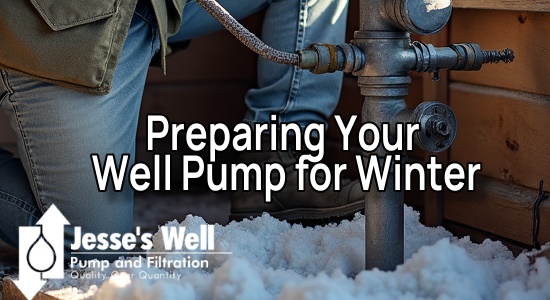
Preparing Your Well Pump for Winter in South Carolina
11/01/2025
How to Winterize Your Well Pump System
When temperatures start dipping below freezing, your well pump system can be one of the most vulnerable parts of your home’s water setup. If the pump or pipes freeze, you might wake up one morning with no running water at all, which nobody enjoys in January. The good news is that winterizing your well pump isn’t complicated once you know what to look for. You just need to take a few practical steps before that first hard frost arrives.
Why Well Pumps Freeze in the First Place
Most modern well pumps are designed to sit below the frost line, so the pump itself is usually safe. The trouble comes from the pipes and fittings above ground. These exposed sections can lose heat fast when the temperature drops. If water sits in those lines overnight, it can expand as it freezes and crack PVC or metal fittings. Once that happens, pressure loss and leaks aren’t far behind. I’ve seen pumps split wide open just from one night of single-digit weather.
Start With the Basics: Insulate and Seal
The first step in winterizing your well pump system is simply adding insulation. Wrap exposed pipes with foam sleeves or fiberglass wrap. Don’t forget the small fittings or elbows, since those are usually the first to freeze. If your well head or pressure tank sits in a small shed or enclosure, check for gaps, missing panels, or drafts. A little weatherstripping or a piece of rigid foam board can make a surprising difference in how much heat you retain overnight.
Use a Heat Source (Carefully)
If your system is in an unheated pump house, consider a low-wattage heat source. A small space heater or heat lamp can keep things above freezing. Just make sure it’s rated for outdoor or enclosed use and placed safely away from flammable materials. I’ve also seen people use self-regulating heat tape, which wraps around the pipes and turns on automatically when the temperature drops. It’s one of those “install it and forget it” solutions that pays off big when a cold snap hits.
Drain and Disconnect Seasonal Systems
If your pump feeds outdoor faucets, irrigation systems, or detached buildings, shut off the valves leading to those lines and drain them completely. Standing water is the biggest enemy during freezing weather. You can use a small air compressor or hand pump to blow out lingering water from sprinkler lines. The thing is, even a teaspoon of water left inside a pipe can freeze and expand enough to split it wide open.
Protect Above-Ground Well Pumps
Some homes still use above-ground jet pumps instead of submersible ones. If that’s your setup, you’ll need a bit more attention. Drain the pump housing fully and remove any drain plugs. A touch of non-toxic antifreeze in the suction line can help prevent freezing, but don’t overdo it. For seasonal homes or vacation cabins, it’s usually smarter to disconnect the system entirely and store the pump indoors until spring.
Check Your Pressure Tank and Switch
The pressure tank and switch are often overlooked during winter prep. Ensure your pressure tank isn’t sitting on cold concrete; place a piece of rubber matting or a small platform under it to minimize cold transfer. If it’s located outside or in a well house, wrap it with a thermal blanket or insulated cover. Inspect the pressure switch wiring for signs of corrosion or frayed insulation. These small details can prevent electrical failures when the system is under stress in freezing temperatures.
Keep an Eye on the Weather
I know it sounds obvious, but monitoring upcoming weather is key. A sudden cold front can sneak up fast, especially in the Carolinas. If you know temperatures will drop sharply overnight, open a faucet slightly to allow a slow drip. That movement helps relieve pressure and keeps water flowing, which reduces the chance of freezing. It’s a small trick, but it’s saved more than a few well pumps from bursting over the years.
When to Call a Professional
Even with sound insulation and preparation, well systems can still encounter trouble. If your pump loses pressure, makes unusual noises, or stops running altogether after a cold night, don’t try to force it back on. Frozen components can break under pressure, and that can turn a minor issue into a major repair. At Jessie’s Well Pump Repair, we handle freeze damage and system inspections across South Carolina. A quick winter checkup can save hundreds in repairs later on.
Final Thoughts
Winterizing a well pump system doesn’t have to be complicated. It’s more about attention to detail than expensive equipment. Insulate what you can, seal up drafts, drain unused lines, and keep an eye on the weather. Honestly, those few steps can make the difference between a trouble-free winter and a flooded well house come spring. And if you’re ever unsure where to start, give a local well specialist a call. Sometimes, a set of trained eyes can spot what you might miss.

